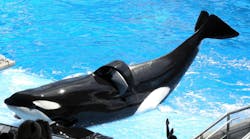Federal Court Upholds OSHA Willful Citation Against SeaWorld for Trainer’s Death
A federal court has rejected SeaWorld’s challenge of an OSHA willful citation stemming from the 2010 death of trainer Dawn Brancheau.
Brancheau died during a live performance at Shamu Stadium in Orlando when a killer whale snatched her off a platform and yanked her into the water, refusing to release her. OSHA cited SeaWorld of Florida LLC for three safety violations, invoking the general-duty clause to issue one willful citation carrying a $70,000 fine.
SeaWorld challenged the willful citation, asserting that working with killer whales was not a recognized hazard because the firm had safety measures in place to mitigate the risk. In a 2-1 decision, however, the U.S. Court of Appeals for the District of Columbia Circuit denied SeaWorld’s appeal.
Judge Judith Rogers notes that Tilikum, the whale that killed Brancheau, had “known aggressive tendencies.” Tilikum was one of three whales involved in the 1991 death of a trainer at the former Sealand of the Pacific in British Columbia.
“SeaWorld had established special protocols for Tilikum,” Rogers explains in the court’s opinion. Those protocols included restricting trainers from working in the water with him and requiring personnel and guests to maintain safe distances from the whale.
“The caution with which SeaWorld treated Tilikum, even when trainers were poolside or on ‘slideouts’ in the pool, indicates that it recognized the hazard the killer whale posed,” Rogers wrote.
Rogers also asserts that a number of statements made by SeaWorld managers after incidents with killer whales “do not indicate that SeaWorld’s safety protocols and training made the killer whales safe.”
“Rather, they demonstrate SeaWorld’s recognition that killer whales interacting with trainers are dangerous and unpredictable, and that even senior trainers can make mistakes during performances, and the managers repeatedly urged caution in working with the killer whales,” Rogers wrote.
In a statement, Fred Jacobs, vice president of communications for SeaWorld Entertainment Inc., noted that the company voluntarily implemented new safety measures in the wake of Brancheau’s tragic death.
“In so noting in its opinion, the court acknowledged that there will still be human interactions and performances with killer whales and, according to the court, the decision simply requires that we continue with increased safety measures during our shows,” Jacobs said. “SeaWorld remains committed to providing a safe workplace for employees, healthy environments for the animals in our care and inspirational and educational experiences with killer whales for our guests.”
Jacobs added that SeaWorld is reviewing the court’s ruling and has not decided whether to appeal.
Judge Brett Kavanaugh, in his dissenting opinion, notes that OSHA traditionally has not exercised its regulatory authority over sporting and entertainment events such as circuses, football games, rodeos and NASCAR races.
“The Congress that enacted the [Occupational Safety and Health Act] in 1970 was certainly aware of the hazards in many popular sports such as football, baseball, ice hockey and boxing,” Kavanaugh wrote. “It was also well-aware of the hazards in entertainment shows such as the circus. Yet as SeaWorld correctly points out, Congress did not in any way indicate or even hint that the [general-duty] clause’s vague terms encompassed an implicit grant of authority to the Department of Labor to regulate and re-make some undefined swath of America’s sports and entertainment behemoth.”
